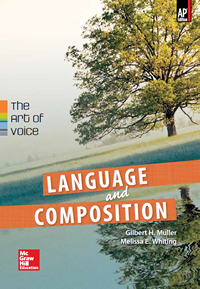
Language and Composition: The Art of Voice (Muller and Whiting)Chapter 7: History, Culture, and Civilization: Are We Citizens of the World?Chapter OverviewAs you read the essays in this chapter, consider the following questions:
In the 21st century, the paroxysms caused by conflicts among peoples, nations, ethnic groups, and cultures continue to shake continents. The United States might have emerged from the cold war as the dominant superpower, but numerous local and global challenges remain. We seem to be at a crossroads in history, culture, and civilization, but does the future hold great promise or equally great danger—or both? The future assuredly holds significant peril as well as promise. History tells us that while there has never been complete absence of barbarism and nonrational behavior in human affairs, there have been societies, cultures, and nations committed to harmonious, or civil, conduct within various social realms. While it is clear that we have not attained an ideal state of cultural or world development, at the same time, we have advanced beyond the point in primitive civilization at which someone chipped at a stone in order to make a better tool. As we consider the course of contemporary civilization, we must contend with our own personal histories and cultures as well as with the interplay of contradictory global forces. We have become increasingly concerned with finding a purpose beyond the parameters of our very limiting personal and nationalistic identities, something that the Czech writer and statesman Václav Havel calls the “divine revolution.” Indeed, we have entered an era of renewed ethnic strife, in which a preoccupation with cultural differences seems stronger than the desire for universal civilization. The writers assembled here grapple with these contradictions; they search for those constituents of history and culture that might hasten the advent of a civilized world. The idea of civilization suggests a pluralistic ethos whereby people of diverse histories and backgrounds can maintain cultural identities but also coexist with other cultural representatives in a spirit of tolerance and mutual respect. The wars, upheavals, and catastrophes of the 20th century were spawned by a narrow consciousness. Hopefully, in this century, all of us can advance the goal of a universal civilization based on the best that we have been able to create for humankind. |  |















